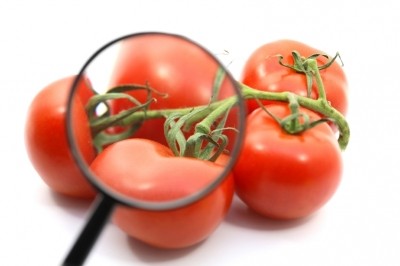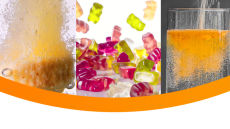Danish study finds calcium counteracts effects of dairy fat uptake

Despite intervention studies showing that saturated fat increases total and LDL-cholesterol concentrations – and resultant advice to avoid high-fat dairy product consumption – University of Copenhagen researchers Janne Lorenzen and Arne Astrup said that observational studies (such as Lin et al. 2000, Brooks et al. 2006) showed an inverse relationship between intake of high calcium dairy products and CVD (cardiovascular disease).
Several intervention studies also showed that dairy calcium, in particular, produces decreases in body weight and fat (Davies et al. 2000), and although others failed to discover an effect (Lorenzen et al. 2006), the current authors noted (Bendsen et al. 2008) that one mechanism by which calcium affects energy balance and thus “potentially body weight” is via increased faecal fat and energy excretion.
Does calcium content affect lipid profile?
Lorenzen and Astrup wrote:“There is a need for more studies that explore the potential role of calcium intake in lipid metabolism…the aim of the present study was to examine whether a concomitant intake of the calcium content of dairy products modifies the effect of dairy fat on the lipid profile.”
The study involved 9 male subjects, with a mean age of 32.8 years, allocated on a random basis to one of four isoenergetic (equal energy) 10-day diets in succession, with a break of at least one week and normal eating habits between each diet.
Approximate dietary values were as follows: (1) low calcium and low fat (700mg calcium per day, 25% fat) (2) high calcium and low fat (2,800mg calcium, 25% fat) (3) low calcium and high fat (700mg calcium, 49% fat) (4) high calcium and high fat (2,800mg calcium, 49% fat).
Dairy products were the main calcium source for participants, with dairy fat the main difference between low and high fat diets (90%). During the high calcium periods, subjects were given milk with each meal; the low calcium diet used a protein drink containing equivalent whey, casein powders and lactose to milk.
Dairy calcium decreased bad cholesterol
Blood variables were measured before and after each diet period, with lipid profiles in faeces and urine collected at the end of each diet period. The results showed that – independent of calcium intake – high fat diets increased LDL and HDL cholesterol concentrations by 9% and 13% against low fat diets.
But irrespective of fat intake, the high calcium diets decreased concentrations of total- (4%) and LDL-cholesterol (10%), although they did not affect HDL cholesterol concentrations, which the authors linked to a “protective effect” where CVD is concerned.
“The major finding is that dairy calcium attenuates the increase in total and LDL-cholesterol produced by increased dairy fat, without affecting the rise in HDL-cholesterol,” wrote Lorenzen and Astrup.
“This is probably, at least in part, due to an increased faecal excretion of fatty acids and bile acid excretion, and possibly also increased excretion of other hydrophobic components, including cholesterol. However, other unidentified mechanisms may also be involved.”
Calcium supplement warning
Calling for more research, Lorenzen and Astrup said the study’s limitations included variations between the diets (independent of calcium and fat content) that “may have confounded the outcome”, the trial’s short duration, and the possibility of adaption to long-term high calcium intake, which could reduce its effecton cholesterol concentration and faecal fat excretion.
They also cited Bolland et al. 2010, in warning that non-dairy calcium administered in supplements (without coadministered vitamin D, which was excluded from the trial), has "recently been shown to be associated with an increased risk of myocardial infarction [or heart attacks]”.
Source: British Journal of Nutrition,published online ahead of print, January 2011: 31:1-10
Authors: Lorenzen, K. Astrup, A.













